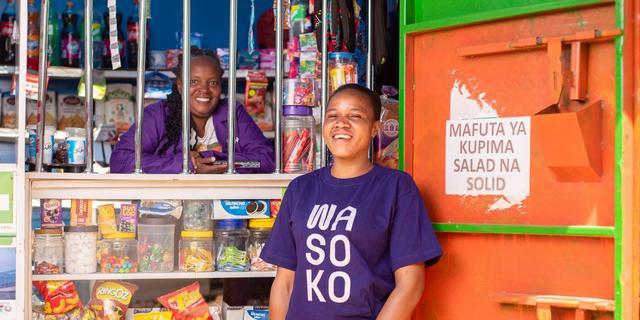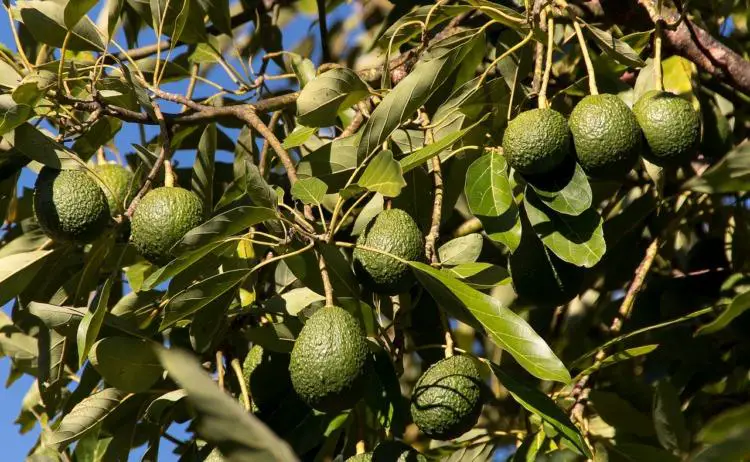- Africa’s natural resources: Will Trump’s policies benefit or exploit the continent?
- US Sanctions Zimbabwe’s gold smuggling Kingpin Kamlesh Pattni
- From Industry 5.0 to Future Finance: AIM Congress 2025’s bold agenda, key partners unveiled
- John Mahama Makes a Comeback as Ghana’s President
- Zambia’s solar energy drive: Fighting rural energy poverty with renewable options
- Nigeria to Ban Corn Exports Amid a Biting Food Security Crisis
- Democracy or diplomacy? Balancing U.S. interests in Africa under Trump 2.0
- African startups hit by funding drought in 2024, but innovation persists
Browsing: Funding
- Africa’s fashion and textile industry is the second-largest sector after agriculture with an estimated market value of US$31 billion
- The use of tech in fashion has been brought to a much broader scale including the use of apps and the creation of smart textiles
- As the majority of Africans were forced to stay home, there emerged countless online clothing stores, most of which were using social media (Facebook, Instagram and Twitter) as marketing tools
Like many other sectors across the continent, the fashion industry is also taking to embracing technology to improve operations.
Africa’s fashion and textile industry is the second-largest sector after agriculture with an estimated market value of US$31 billion in 2020 and growing annually.
While combining tech with fashion may seem farfetched, technology has always been an essential factor in the production of clothes and the different styles in fashion since the beginning of time.
It is …
- Social commerce may seem like a more foreign concept but it is widely used across Africa
- Online shopping has gained more popularity during the Covid-19 crisis, turning social networking platforms like Facebook and Instagram into business tools
- Social commerce- which is abbreviated as s-commerce- represents the integration of shopping and social media
When the Covid-19 pandemic hit back in 2019, a majority of individuals were forced to turn to social media platforms in search of goods and services.
While most people view this as the growth of e-commerce across the globe, it also gave rise to the growth of social commerce.
Social commerce may seem like a more foreign concept but it is widely used across Africa.
Online shopping has gained more popularity during the Covid-19 crisis, turning social networking platforms like Facebook and Instagram into business tools.
Social commerce- which is abbreviated as s-commerce- represents the integration of …
“Sokowatch started as this kind of backend brand. We wanted a brand that could be more front and centre for the African retailer and easily pronounced across all markets while reflecting our East African roots. So that’s why we’ve rebranded now to Wasoko, meaning ‘people of the market,” Yu said.
The seven-year-old company said this round of funding will go towards exploring expansion into Nigeria as well as Southern Africa while consolidating its position across its six current markets.
It will also make hires and expand its product offerings to point-of-sale merchant systems, bill payments and social commerce, verticals it might build in-house or back and acquire companies that provide such services.
The company also offers a buy now, pay later option for retailers who need working capital to order more goods. Buy now, pay later offerings are the latest trend for B2B retail and e-commerce companies. They see it …
- Majority of private equity investment in Sub-Saharan Africa is from outside the continent and represents only a fraction of the capital required
- African startups surpassed the US$ 1 billion mark in capital raised over the first seven weeks of 2022
- The bulk of the funding (76%) and of the deals (78%) have been claimed by startups headquartered in one of the ‘Big Four’ (Nigeria, South Africa, Kenya, and Egypt)
Africa continues to show strong growth prospects, with an expectation of a significant rebound from the Covid-19 pandemic that has spanned over two years, which has also affected African growth less than in developed markets.
International investment plans and programmes to promote investment in Africa support growth potential given the correlation between Foreign Direct Investment (FDI) and Gross Domestic Product (GDP).
Currently, the majority of private equity investment in Sub-Saharan Africa is from outside the continent and represents only a fraction …
- Data by the World Bank Group reveals that Kenya’s electrification rate currently stands at 70 per cent
- Easing the financial access barrier for end-users has improved the uptake of home solar systems over the past decade.
- The Kenya National Electrification Strategy highlights the Kenyan government’s plans to scale up off-grid electrification with ambitions to establish two million new connections through standalone solar home systems by 2022.
Bboxx Kenya is set to receive a US$14 million (Ksh1.6 billion) loan facility from SBM Bank Kenya aimed at connecting 470,000 Kenyan households to renewable energy sources.
GuarantCo, a fund backed by the governments of UK, Switzerland and Australia among others, is guaranteeing Ksh1.2 billion or 75 percent of the loans.
“SBM Bank is elated to spur the growth of the energy sector in Kenya through partnerships with like-minded entities such as Bboxx and GuarantCo,” SBM Bank Kenya’s deputy chief executive officer Jotham Mutoka …
Norrsken22 plans on capitalizing on its general partners’ years of experience and investment philosophies to back startups in fintech, MedTech, Edtech, and market-enabling solutions such as B2B marketplaces and inventory management businesses.
Kolbe, whose previous firm Actis backed Egyptian fintech giant Fawry in 2019 as it prepared to go public, said Norrsken would look at Egypt ‘opportunistically.’
Deals from the country that may be of interest to the firm will be those planning an expansion into the four markets Norrsken22 is currently keen on, including Nigeria, Ghana, Kenya and South Africa.…
While tech has presented an avenue to create jobs, supply isn’t catching up with demand. Additionally, the continent’s best talents are leaving in droves to foreign companies in the U.S, Canada, the U.K., and Germany.
AltShcool Africa founded by Adewale Yusuf, Akintunde Sultan and Opeyemi Awoyemi last October in Nigeria, has already received more than 8,000 applications for its software engineering program which starts in April.
These applications come from 19 countries (including 14 African countries) and Yusuf said the company received the most entries from Nigeria, Ghana, Uganda, Kenya and Botswana. …
The programme has so far managed to bring on board at least eight companies, such as Selcom Paytech Limited, Techno Image Ltd, AKM Glitters Company, financial institutions such as FINCA Microfinance, Victoria Finance PLC, AML Finance and Reni International Company Limited.
Endeleza which is also a Swahili literal term for “prolong” has been fitted with an ultimate objective which is qualifying SMEs with access to potential private capital from investors and financiers and other actors across the line such as angel investors, venture capital funds, private equity funds, banks and other financial institutions.…
Rural businesses in Africa will benefit from an ambitious new financing programme launched by the UN’s International Fund for Agricultural Development (IFAD), as part of its broader efforts to address rising hunger and poverty levels in the world’s poorest countries.
In a statement, IFAD says the programme, dubbed ‘The Private Sector Financing Programme (PSFP)’, aims to spearhead an increase in private investment in small and medium-sized enterprises (SMEs), farmers’ organizations and financial intermediaries servicing small-scale farmers, which are too often neglected by investors.
It will provide loans, risk management instruments (such as guarantees), and equity investments.
Commenting on the development, Gilbert F. Houngbo, President of IFAD said there is need to urgently stimulate more private sector investments to rural areas and unlock the immense entrepreneurial potential of millions of rural SMEs and small producers.
“With access to capital, they can attract more investors and partners, grow their businesses and create …
 Nigeria has a rich venture capital environment and in our new reality, startups will need to adapt to fund themselves. Fabio Scala from FurtherAfrica spoke to Aderonke Alex-Adedipe, a partner of Pavestones Nigeria to understand how the upcoming regulations will impact the market, particularly in regards to crowdfunding platforms and the eligibility and limitations companies may see in effect once the crisis is over.…
Nigeria has a rich venture capital environment and in our new reality, startups will need to adapt to fund themselves. Fabio Scala from FurtherAfrica spoke to Aderonke Alex-Adedipe, a partner of Pavestones Nigeria to understand how the upcoming regulations will impact the market, particularly in regards to crowdfunding platforms and the eligibility and limitations companies may see in effect once the crisis is over.…











